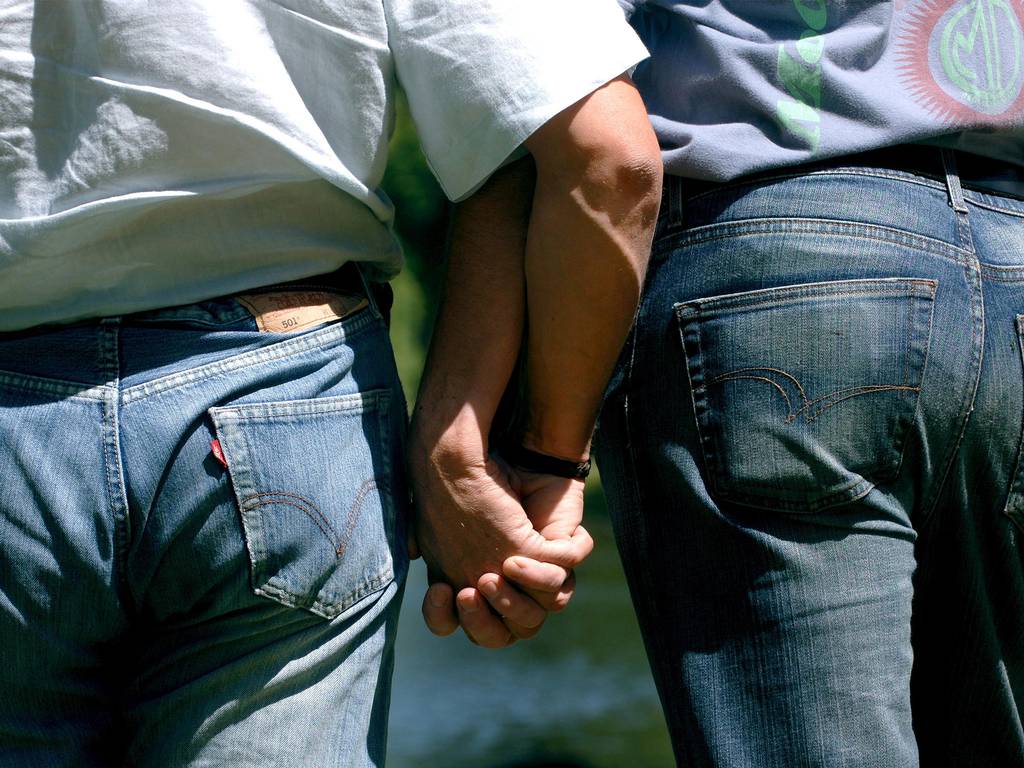The creative applications of Tinder and Grindr are endless - so let's not demonise them too soon
Friends are made, spontaneous encounters facilitated, future husbands found, even foreign cities brought to life with apps that are a godsend for isolated people

I was at a supper recently where one of my good friends recounted an anecdote that made me chuckle. He told us how he had recently met up with a chap on Grindr who after eagerly tearing open the condom wrapper with his teeth, inadvertently dissipated any sexual tension there had been by looking down at my friend, smiling wryly, and asking, “So, shall I be mother?”
Grindr has become, for many of us, part of our conversation, a part of our daily lives. Friends are made, spontaneous encounters facilitated, future husbands found, even foreign cities brought to life - to a creative mind, the applications of Grindr are limitless.
As Steve Carter said so poetically in Get Real, “Find someone to do it with, find somewhere to do it, and do it.”
Okay, perhaps it’s not quite that simple - and odds are that if you’re a teenager meeting men in public bathrooms in Basingstoke, it’s not usually going to turn out to be the head boy in the other cubicle. Still, I was rather dismayed by the recent report which apparently highlights the way that Grindr and Tinder are apparently featuring more in crime reports. According to the Independent, “there were 412 reports of crime in England and Wales mentioning Grindr or Tinder in 2015, a far cry from the 55 reports filed in 2013.”
As a teenager using online dating platforms, you learn the ground rules pretty quickly - always be suspicious of faceless profiles, never invite someone round to your house, and of course if someone claims to be David Beckham, odds are he isn’t. But even with all the common sense in the world, bad people can use these sorts of platforms to do bad things. And vulnerable men on Grindr, whose activities might be taboo in their community and whose sexualities may remain a secret, can end up the target.
My friends and I used to employ a very simple system whereby we would text each other an address if we were going to someone’s house, and occasionally even the odd number plate (if we were going for a drive), just to make sure someone always knew where we were. It’s not completely watertight, but it’s safety in numbers – and because my own social group is open about its dating app use, we have conversations and learn from each other.
Do I find it surprising that the words “Tinder” and “Grindr” are appearing more in police reports? Not really - Grindr and Tinder now both boast millions of active users, and so while the rise is significant in the context of previous figures, it’s perhaps not quite as dramatic as all that. Wherever there are huge numbers of people, some crime will follow. Tinder’s response on BBC’s Newsbeat was apt: “People with bad intentions exist in coffee shops, bookstores, on social media and social apps.”
Living in a jam-packed city like London, many people enjoy a pretty athletic sex life as well as a demanding career. Whereas before this kind of activity would have - for gay men at least - necessitated a slippery trip to the anonymous caverns of Sweatbox or Chariots (or even a “cottage” for those living in the countryside), we now have the option of seeking company from the comfort of our own homes, maybe enjoying a glass of wine and some late Schubert with him, her (or them) before, after, or even during.
This is surely a much more agreeable alternative, not to mention much safer, cleaner and altogether more enjoyable.
The anti-dating app furore has begun, of course. But before we get ourselves too worked up about new technology, let’s remember that the crimes reported – rape, blackmail, sexual exploitation – are awful, and are hardly the preserve of the Grindr generation. The simple fact is that dating strangers can sometimes be dangerous, whatever the venue or the platform. But the liberation that this subtle app has afforded a cohort of over-worked and often isolated gay men shouldn’t be ignored.
Join our commenting forum
Join thought-provoking conversations, follow other Independent readers and see their replies
Comments